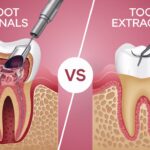At URBN Dental in Houston, we understand the significance of a healthy and complete smile. Dental implants are an innovative solution for replacing missing teeth, providing a natural-looking and durable alternative to traditional dentures. In this guide, we will explore the various types of dental implants and the techniques used in their placement.
What Are Implants?
Dental implants serve as artificial tooth roots, securely anchored into the jawbone to support replacement teeth. Unlike traditional dentures, which rest on the gums or are anchored to adjacent teeth, dental implants offer stability and functionality similar to natural teeth. They not only enhance the aesthetics of your smile but also promote better oral health by preventing bone loss and preserving adjacent teeth.
Types of Dental Implants
Endosteal Implants
Endosteal implants are the most common type of dental implants. These implants are surgically placed directly into the jawbone and serve as a sturdy foundation for artificial teeth. Endosteal implants are suitable for individuals with sufficient jawbone density and are often used to replace single or multiple missing teeth.Mini Dental Implants
Mini dental implants are smaller in diameter compared to traditional implants and are typically used in cases where there is minimal bone density or space limitations. These implants are ideal for securing removable dentures or for replacing small teeth in areas with narrow gaps.Dental Implant Techniques
Implant Placement
The process of placing dental implants involves several stages. First, we will assess your oral health and bone structure to determine the most suitable implant type and placement technique. Then, the implants are surgically inserted into the jawbone, where they fuse with the surrounding bone through a process called osseointegration. Once the implants have integrated successfully, prosthetic teeth are attached to them, completing the restoration.Bone Grafting
In cases where there is insufficient bone density to support dental implants, bone grafting may be necessary. This procedure involves transplanting bone tissue from another part of the body or using synthetic materials to augment the jawbone. Bone grafting enhances the stability of dental implants and ensures long-term success.Temporary Teeth
During the healing period after implant placement, temporary teeth may be provided to maintain aesthetics and functionality. These temporary restorations are designed to fit securely over the implants and can be easily replaced with permanent prosthetic teeth once the healing process is complete.Implant-Supported Restorations
Implant-Supported Dentures
Unlike traditional dentures, which rely on adhesives or suction to stay in place, implant-supported dentures are anchored to dental implants. This provides a more stable and comfortable fit, allowing you to eat, speak, and smile with confidence. Implant-supported dentures also help preserve gum tissue and prevent further bone loss.Implant-Supported Bridges
Implant-supported bridges are used to replace multiple missing teeth in a row. These bridges are supported by dental implants placed at either end of the gap, eliminating the need to alter adjacent healthy teeth for support. Implant-supported bridges offer superior stability and aesthetics compared to traditional bridges.FAQs About Dental Implants
How long do dental implants last?
Dental implants are designed to be a permanent solution for tooth replacement. With proper care and maintenance, dental implants can last a lifetime. However, individual factors such as oral hygiene habits, lifestyle choices, and overall health can influence the longevity of implants. Regular dental check-ups and good oral hygiene practices are essential for ensuring the longevity of dental implants.Is the dental implant procedure painful?
The dental implant procedure is typically performed under local anesthesia to minimize discomfort during the surgery. While some patients may experience mild soreness or discomfort following the procedure, it can usually be managed with over-the-counter pain medication. Our team at URBN Dental in Houston prioritizes patient comfort and employs advanced techniques to minimize discomfort during and after the implant procedure.Who is a suitable candidate for dental implants?
Most adults with good oral and general health are suitable candidates for dental implants. However, certain factors such as inadequate bone density, uncontrolled gum disease, or systemic health conditions may affect eligibility for dental implant surgery. During your consultation at URBN Dental, we will evaluate your oral health and discuss your medical history to determine if dental implants are the right option for you.How long does it take to recover from dental implant surgery?
The recovery time after dental implant surgery varies from person to person and depends on factors such as the number of implants placed and the individual’s healing capacity. In general, patients can expect some swelling, bruising, and discomfort in the days following surgery. Most patients can return to their normal activities within a few days to a week after surgery, but it may take several months for the implants to fully integrate with the jawbone.Are dental implants covered by insurance?
Dental implant coverage varies depending on your insurance plan. While some dental insurance policies may cover a portion of the cost of dental implants, others may not cover them at all. Our team at URBN Dental will work closely with your insurance provider to maximize your benefits and minimize out-of-pocket expenses. We also offer flexible financing options to help make dental implants more affordable for our patients.Can dental implants be used to replace multiple missing teeth?
Yes, dental implants can be used to replace multiple missing teeth. Depending on your individual needs and preferences, our team at URBN Dental can customize a treatment plan using implant-supported bridges or implant-supported dentures to restore your smile. These implant-supported restorations offer superior stability and functionality compared to traditional tooth replacement options and help preserve the health of your gums and jawbone.Explore Your Dental Implant Options in Houston
Dental implants offer a permanent and reliable solution for replacing missing teeth, restoring both function and aesthetics to your smile. At URBN Dental in Houston, we specialize in various types of dental implants and employ advanced techniques to ensure optimal outcomes for our patients. Whether you are missing a single tooth or multiple teeth, dental implants provide a long-lasting solution that closely resembles natural teeth. Schedule a consultation with us today to explore your tooth replacement options and regain your confident smile.Sources:
The influence of restorative procedures on esthetic outcomes in implant dentistry: a systematic review. (2014). Clinical and esthetic outcomes of implants placed in postextraction sites. (2009).URBN Dental Services in Houston, TX
Houston | Katy | Montrose | West University Place | Greater Third Ward | Greater East End | North East Houston | Houston Heights | Central Northwest | Fairbanks | Acres Home | East Houston | Southeast Houston | Central Southwest | Fort Bend Houston | Brays Oaks | Meyerland Area | Sharpstown | Alief | Westchase | Memorial | Northwest Houston | Katyland | Whispering Lakes | Pine Lakes | Woodcreek Reserve















